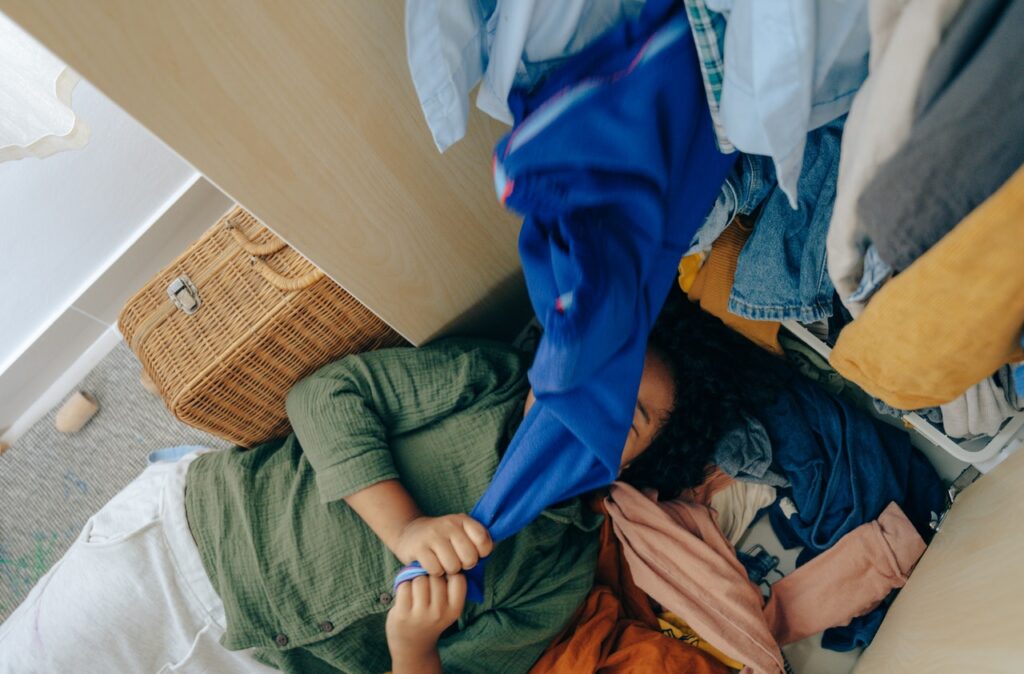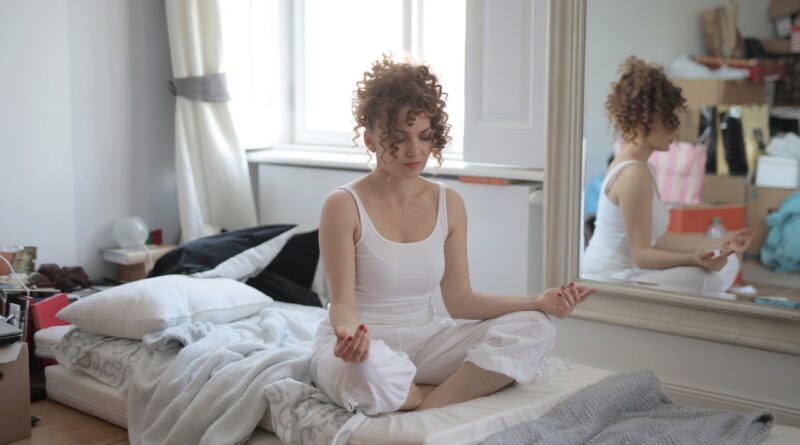16 Eye-Opening Home Organization Stats and How to Avoid Becoming One
Most of us wish that we could have more control over our homes; we dream of a house where everything has a particular place and know where everything is.
However, this dream – for many of us – is far from being a reality.
Here are 16 statistics to motivate you to make a change and what you should do to avoid becoming one of these cautionary stats:
According to the L.A. Times, the average U.S. home has around 300,000 things.
Let’s be honest: nobody needs 300,000 things. Most of these items are an accumulation of items we don’t need or use – and may have even forgotten that we own.
One of the top ways to reduce clutter in the home is to reduce the number of things your home can become cluttered with. One of the most trending home organization strategies – popularised by home-organization guru Marie Kondo – is the ‘spark joy’ method, where you ditch anything that doesn’t bring you joy.
For the more practical items – the items that you need but that don’t necessarily bring you joy – ask yourself: have I used this in the past 6 months? If not, it might be time to ditch it.
According to an HSH study, a lack of storage space is a homeowner’s number one pet peeve.
A space can quickly start to look cluttered if there aren’t enough places to store your belongings efficiently.
Often, increasing your storage space is about maximizing the space you have, such as the space on your walls. For example, installing shelves, magazine racks, or hooks – or purchasing items such as vacuum storage bags to reduce the space that your belongings would ordinarily take up.
9.4% of U.S. households rent a self-storage unit.
With storage being a lack of storage space being a home owners pet peeve almost 10% are taking items they don’t use that often and storing them outside of the home. According to Sparefoot in 2019 the national average cost for all unit sizes was $87.89 per month. That is a lot of money to store items you don’t usually use, and that does not even account for all time and gas money it takes whenever you go to the storage unit to retrieve or store something.
One of the best things you can do is to declutter your house and organize it in a way that you don’t need to have a storage unit.
A OnePoll survey found that 10% of women feel depressed every time they open their closet doors.
Our ‘stuff’ – particularly our clothes – should never be a cause of our unhappiness, especially when, at the time of their purchase, they often serve to make us happy; this previously love-filled relationship turning sour has nothing to do with the clothes, and all to do with our lack of organization.
When it comes to your closet, you need to take everything out – decide what you want to keep and what can be donated, based on if you’ve worn an item in the past year (or less) – and decide on an organizational system before you begin to replace your clothes in your closet.
On average, it’s estimated that we’ll each spend 3,680 hours of our lives searching for misplaced items.
A (highly) successful home organization project will leave you with a home in which you can pinpoint and find any item: each of yours – and your family’s – belongings will have a particular place in your home where it belongs, allowing you to find them instantly.
Though you’ll have to build a habit around always returning your things to the place where they “belong,” over time, the process will become so natural that you won’t even have to think about it.
Along the same lines, phones, keys, sunglasses, and paperwork are the most commonly misplaced items in homes.
For these particular items, there are quick fixes to ensure that you never lose them again.
For example, consider installing a key hook, placed somewhere near the entrance to your home, so you can hang your keys as soon as you enter your house and can quickly grab them as you leave again.
For sunglasses – and prescription glasses – consider investing in a glasses rack so that they’re always on display and so that there’s a designated place for them to go when you remove them from your face.
When it comes to paperwork, you need to build a filing system that works for you, eliminate paper clutter, and always find essential documents.
According to one study, only 20% of the things we own are actually used.
One of the most common afflictions that people today suffer from is a need to hoard the things they own, even if they’re no longer being used – or were never used in the first place.
There are so many reasons why we hoard things – we think we might possibly, maybe need them in the future – or perhaps these things have been gifted to us, and we feel too guilty to throw them away.
Nevertheless, this shouldn’t stop you from improving your quality of life by freeing up space and allowing you to organize your home more efficiently by getting rid of the things you don’t need.
One survey found that 23% of people pay bills late because they lose them.
The key benefit to organizing your home is that – if done correctly – it means you know where everything is, and you have systems in place which allow you to continue to organize your belongings as they enter your life: your bills, for instance.
One of the most useful organizational habits you can implement is building a filing system so that all of your paperwork is where you expect it to be. Within this system, you know where to find the paperwork relevant to each area of your life on demand.
According to another OnePoll survey, 1 in 9 women had been late for work because they couldn’t find a part of their outfit.
First thing in the morning, it can be overwhelming to sift through your closet to find the right clothes for the day, and a closet and bedroom reorganization will help you relieve your morning stress.
In addition to re-organizing your closet, it might be a good idea to invest in a freestanding closet so that you have somewhere to put your frequently worn outfits, to save time in the morning, and lessen the frustration you feel when getting ready.
78% of people find home decluttering and organization too complicated to deal with.
Especially if the ‘stuff’ in your home has been compiling for years – and you’ve never decluttered, never mind re-organized your home – then the prospect of such a large project can be overwhelming, and you might not know where to start. In fact, PRN Newswire goes on to say that 54% of America is overwhelmed by how cluttered and messy their home is.
It might be best for home organization rookies to follow a home organization course to give you the framework you need to gift your home the organizational makeover it deserves.
On average, women in the U.S. own $550 worth of unworn clothing.
If you don’t wear it, you shouldn’t have it; it’s a truth that many of us love to ignore, thinking that – one day – we’ll be presented with the perfect occasion to wear an item of clothing that’s been sitting in our closet for a decade. Meanwhile, your unworn clothes take up space and cause clutter in your closet.
To take back control over your over-full wardrobe, thoroughly sort through your clothes, and make the decision to sell or donate anything that you barely – if ever – wear.

In one survey, it was found that 45% of people would consider hiring a professional organizer.
While hiring a professional organizer can help you take control over your clutter and your home organization, you can become your own personal organizer, for a much lower cost, by taking a home organization course. We are currently in the process of building on if you would like be a beta student click here.
44% of Americans are more likely to make unhealthy food choices when their home is messy.
When you have an out-of-control home – particularly in the kitchen area – you’re not going to enjoy spending time using the space and cooking healthy meals. You’re more likely to just grab something from the fridge or freezer, shove it in the oven, and evacuate the area.
One of the best ways to keep a space clean is to reduce the amount of ‘stuff’ in the area, and kitchens are one of the hotspots for storing junk. Particularly if you’re a married couple, people gift you all kinds of kitchenware that you don’t need, and it’s okay to get rid of some of it.
The two top reasons people struggle with addressing clutter are a lack of time (22.8%) and that they find it overwhelming (30.8%).
The best way to begin any job is to break it up into smaller tasks – and the same can be said for a home reorganization project.
By breaking what seems like a huge task up into little, manageable ones, you won’t become overwhelmed, and you can complete your project by doing a small task each day, based on how much time you have to spend improving your home.
Approximately only 8% of people use home organization apps.
Despite our ever-increasing reliance on smartphones, home organization apps are disproportionately left untouched – and yet, according to a Huffington Post survey, 47% of people say the cleanliness and organization of their home have caused them stress in the last month.
As such, indeed, any tool to ease your home organization journey – whether that’s an app, a guide, or even a course – is a great place to start. Check out a list of some of our best home management apps.
A Moen survey found that kitchens and home offices were the most cluttered living spaces in a home.
While this is probably no surprise to most people, it’s useful to answer the question: why? Well, each of these areas within your home has a purpose – and, more specifically, a storage purpose.
For example, your home office is where you’d typically keep paperwork, books, and files, among other types of clutter. However, with the organizational systems in place to ensure that everything has a place, your home office can stop being a paper junkyard.
Likewise, the kitchen often becomes a breeding ground for containers, lids, derelict pots and pans, as well as out-of-date food that accumulates over time. But, by doing a brutal cull of everything you don’t need, you can make your kitchen a clutter-less space.
So, if you want to rise above the stats, and have them organized, decluttered home of your dreams, then break up with your out-of-use belongings, build systems and habits in your home that allow you to stay organized, and consider taking a home organization course to give you the framework you need to make these changes happen.

